Spreads on IC Markets vs XM broker may vary depending on the specific account type and market conditions.
Both IC Markets and XM are some of the most well-known forex brokers in the industry. They welcome traders of various trading styles and backgrounds with speedy execution. However, which has the better spread between IC Markets vs XM?
In general, IC Markets may have the lowest spread, but XM is better when it comes to overall fees (spreads and commissions). Nevertheless, spreads offered by forex brokers may vary depending on the specific account type and market conditions. As we could not monitor global spreads fluctuation in real-time, we can only compare the available rules for spreads on IC Markets vs XM broker. Let's study it thoroughly.
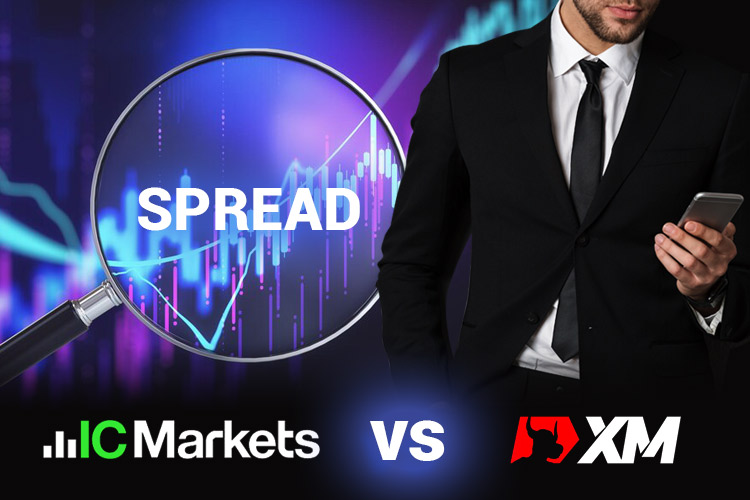
What are the spreads on IC Markets?
IC Markets has long been providing some of the tightest spreads among all forex brokers worldwide through their Raw Spread Account. On the MetaTrader and cTrader platforms, raw spreads begin at 0.0 pips. Their average EUR/USD spread, as low as 0.1 pips, is now one of the tightest in the world.
Minimum spreads on IC Markets:
- Raw Spread account (cTrader): 0.0 pips
- Raw Spread account (Metatrader): 0.0 pips
- Standard account (cTrader): 0.6 pips
How did they do that? IC Markets is able to constantly find the best deal for its clients and maintain narrow spreads by combining quotes from up to 25 different liquidity providers. It greatly benefits traders, particularly during periods of extreme volatility like those following high-impact events.
IC Markets' Depth of Market (DOM) also shows the whole range of executable prices directly from level II liquidity providers. It enables complete transparency of each currency pair by displaying the volumes that are currently available for each price level. Meanwhile, low latency and high liquidity ensure the narrowest spreads feasible 24/5.
All of that doesn't come cheap, however. IC Markets charges a commission fee of $3.0 per USD100,000 in cTrader and $3.5 per USD100,000 in Metatrader. It is not the most expensive in the industry, but it is also not the most affordable.
You can choose their Standard Account instead if you don't want to deal with it. IC Markets' Standard Account charges zero commission per lot per side, but spreads are comparably higher, starting at 0.6 pips.
IC Markets is an online forex broker operating under the company of International Capital Markets Pty Ltd. Traders under the Australian jurisdiction are provided with the trading service of IC Markets AU that is headquartered in Australia and licensed by the Australian Securities and Investments Commission (ASIC).
On the other hand, non-Australian traders who open an account in this broker are registered under IC Markets SEY that is based in Seychelles, and regulated under the Seychelles Financial Services Authority (SFSA). The dual operation is a result of the relatively new rules from ASIC that prohibit their regulated broker to offer trading services outside Australia.
Classified as an ECN broker, IC Markets provide clients with MetaTrader 4, MetaTrader 5, cTrader as platform trading options. This broker also follows market trends to include Cryptocurrencies as one of its products, enriching its already wide selection of trading assets that include Currencies, Indices, Metals, Energies, Softs, Stocks, as well as Bonds.
The minimum deposit in IC Markets is in the middle range compared to other ASIC-regulated brokers, as it reaches $200 for every client. Market analysis materials are also prepared regularly for trading insights on IC Markets's official website, proving their competence to serve their traders with important contents created by market experts that work specifically for them.
For payment methods, IC Markets allows funding and withdrawal via wire transfer, credit card, PayPal, Skrill, Neteller, FasaPay, UnionPay, as well as Bitcoin via BitPay. The more interesting aspect from this broker is its multi-base currencies that include USD, AUD, EUR, GBP, SGD, NZD, JPY, CHF, HKD, and CAD.
As the trading technology in IC Markets is highly equipped with co-located servers and extremely low latency (especially on cTrader), the broker is widely known for its capability in hosting traders with the special needs for high-frequency trading as well as scalping.
To sum up, IC Markets is a fitting destination for active traders looking for a well-regulated broker. IC Markets is also flexible in terms of base currency and payment methods, signaling their commitment to welcome traders beyond their home country. As of late 2019, IC Markets provided their website in 18 international languages including English, Korean, Indonesian, French, Spanish, Italian, Malay, German, and Chinese.
What are the spreads on XM?
XM broker offers three types of trading accounts for forex traders: Micro, Standard, and Ultra Low. Spreads on XM can be as low as 0.6 pips in their Ultra Low account, or as low as 1 pip in Micro and Standard accounts.
All of them are free of commission fees. As such, you may open an account in XM to enjoy cheaper trading costs.
Minimum spreads on XM:
- Micro account: 1 pip
- Standard account: 1 pip
- XM Ultra Low account: 0.6 pips
- Shares account: as per the underlying exchange
Notwithstanding its affordability, it needs to be noted that XM is not an ECN broker and does not provide DOM. It means that XM's environment may be preferable for beginners who will benefit from simpler trading platforms than for more experienced traders who seek better transparency.
Keep in mind that XM's status as a market maker does not make it uncompetitive. Due to its low minimum deposit requirement and competitive pricing, XM remains a favorite for more than 3.5 million clients in over 200 countries.
XM Group is a group of regulated brokers and it is owned by Trading Point Holdings Ltd. Entities under XM Group have significant experience as financial services providers worldwide.
Trading Point of Financial Instruments Ltd was established in 2009 with headquarters in Limassol, Cyprus, Trading Point of Financial Instruments Pty Ltd was established in 2015 with headquarters in Sydney, Australia, XM Global Limited was established in 2017 with headquarters in Belize and Trading Point MENA Limited was established in 2019 with headquarters in Dubai.
XM Group is regulated by the CySEC (Cyprus Securities and Exchange Commission) - Trading Point of Financial Instruments Ltd, FSC (Financial Services Commission) – XM Global Limited, the ASIC (Australian Securities and Investments Commission) - Trading Point of Financial Instruments Pty Ltd and DFSA (Dubai Financial Services Authority) - Trading Point MENA Limited.
XM is one of the more experienced brokers in the world of online forex trading today. Since its founding, the broker has experienced a lot of changes, including the addition of the Ultra-Low Account and EN Live Edu that is instructed by 16 global experts.
In terms of trading instruments, XM is a well-known diverse class assets provider, varying from Forex, Crypto, Stock CFDs, Turbo Stocks, Commodities, Equity Indices, Precious Metals, Energies, & Shares. XM prides itself to be the ideal broker in trading execution, offering a stat of 99.35% orders to be executed in less than 1 second. Trading in XM would be also provided with a strict no requotes policy, no virtual dealer plug-in, no rejection of orders, real-time market execution, and the choice for traders to place orders online or by phone.
Spreads on all majors can reach as low as 0.6 pips in Ultra-Low Account, while spreads on other accounts usually start from 1 pip.
To protect the client's fund in the event of extreme volatility, XM presents each account type with Negative Balance Protection. Minimum deposit of $5 applies to Standard, Micro, and also Ultra-Low Accounts. Traders who open accounts in XM are enabled a condition similar to a Cent Account environment in the Micro Account, in which the Contract Size for every lot is only 1,000 units. If it is applied with the smallest lot size in the MetaTrader platform which amounts to 0.01, it means that traders can go as small as 10 units per trade.
For the deposit, XM applies zero-fee deposits in most of its available payment methods. Traders can choose to fund or withdraw their accounts via wire transfer, credit card, as well as the most favorable e-payment choices like Skrill, Neteller, and FasaPay.
To give their clients the best experiment in trading, XM has given access to both MT4 and MT5 platforms, each is available for more than 6 display formats (PC, Mac, Multiterminal, WebTrader, iPad, iPhone, Android, and Android Tablet).
All in all, there is no doubt that XM has gone global with its deep commitment to providing services in more than 30 different languages across the world. Aside from easing traders' experience with mainstream trading platforms and high-quality trading execution, XM is open to various types of traders, from small capital traders to the more experienced ones with big deposits at the ready. Traders are even provided with a Cent Trading environment should they choose to register under Micro Account.
For their global approach, XM has ensured that traders from various countries could access their service easily. This results in the provision of different domains specified for traders in certain jurisdictions. For example, traders from Indonesia could access XM via this link.
Conclusion
IC Markets and XM equally apply floating spreads on all account types. However, they implement different pricing structures.
IC Markets has the lowest spread, while XM offers cheaper fees overall. Due to this contrast, traders are recommended to choose the one that is most suitable for their trading styles and available capital.
Look over their respective demo accounts to understand how their spreads work in real market environment. It's also crucial to take into account additional aspects before making a choice, including the trading platforms, customer support, and the overall reputation of the broker.

 Free FOREX Virtual Private Server
Free FOREX Virtual Private Server Dedicated FREE FOREX VPS
Dedicated FREE FOREX VPS MT4 Demo Contest, Get $500
MT4 Demo Contest, Get $500 Sign Up for an Account, Claim 60% Deposit Bonus
Sign Up for an Account, Claim 60% Deposit Bonus Free MT4/MT5 VPS 2024
Free MT4/MT5 VPS 2024 Send E-mail and Get Free Merchandise
Send E-mail and Get Free Merchandise $1K Refer a Friend Bonus for Pepperstone Pro clients
$1K Refer a Friend Bonus for Pepperstone Pro clients Maximize Your Earnings with 100% Deposit bonus
Maximize Your Earnings with 100% Deposit bonus Trade to Win, $5,000 Monthly Demo Contest
Trade to Win, $5,000 Monthly Demo Contest Claim 30% + 15% Deposit Bonus from LiteFinance
Claim 30% + 15% Deposit Bonus from LiteFinance
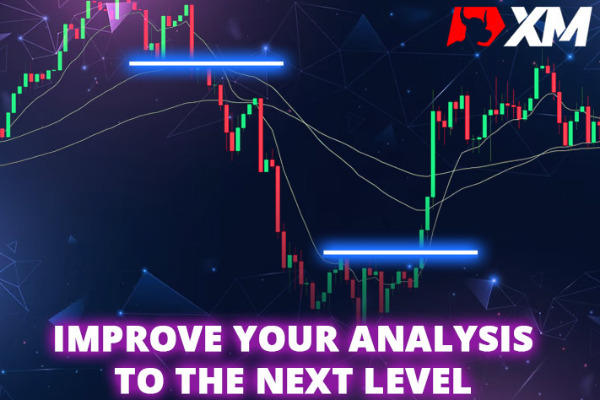
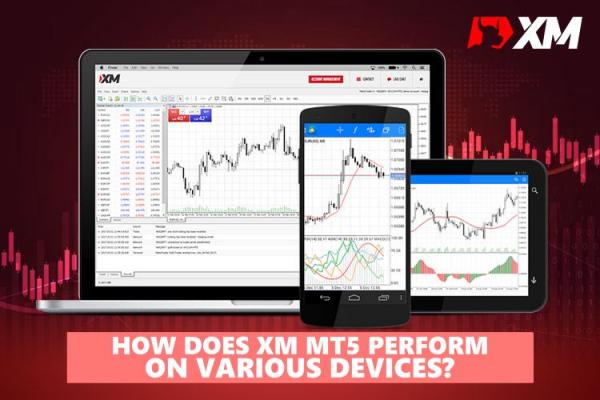
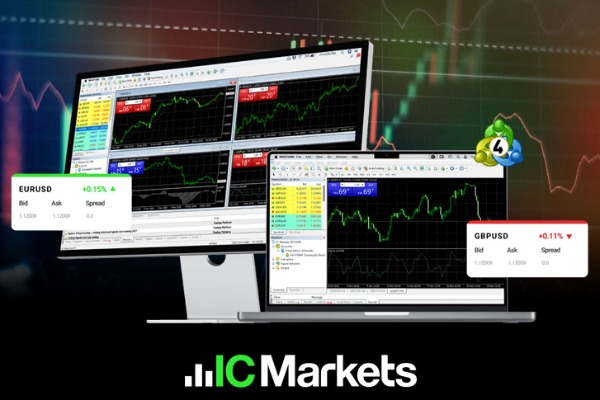
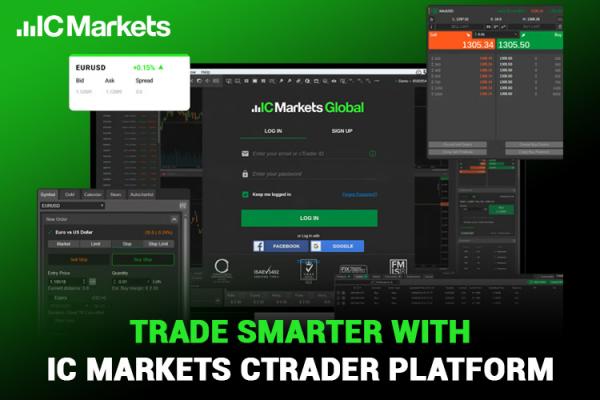
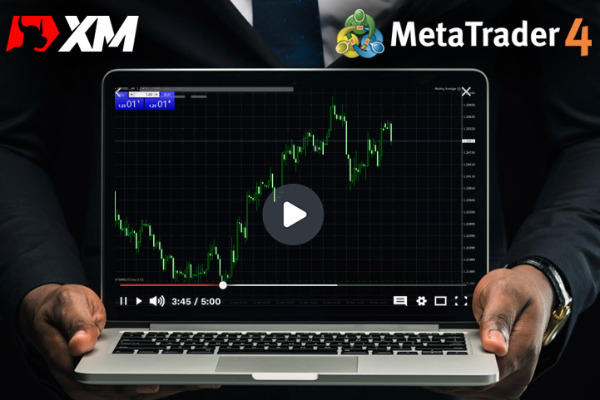
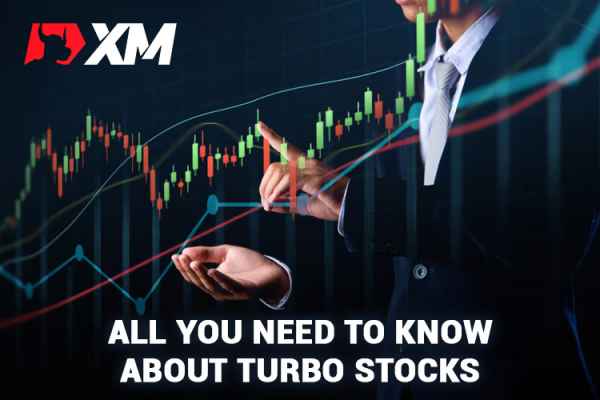
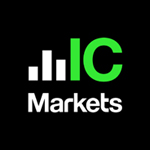
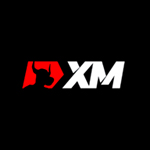

25 Comments
Jimmy carter
Jan 28 2023
Sally
Jan 28 2023
Jimmy Carter : Do not be disappointed, in fact not all brokers in the world are connected to the forex market. It is simply a bridge for a client or trader to connect with a liquidation provider that has access to live markets.
There are several types of brokers namely Non-Dealing Desk, Dealing Desk and ECN. You can read the details here: Brokers Type that you must know
For now, let's focus on the No Deal Table (NDD) first. If you have read the article I shared above, you will see that NDD works like this:
As you can see, the brokers actually send your order to the secondary liquidity provider, which is the bank or other financial provider, then the secondary LP sends the broker's order through the primary liquidity provider, then the order will be sent to the market forex exchange. And with this situation, as a trader, we cannot know the depth on maarket condition and due to many processes going on, spreads can increase, and the broker can mark up the spread too. So don't be confused if some brokers can apply spreads from 0 pips to 1-2 pips or even more.
Gabriel
Jan 28 2023
Don't forget about ECN brokers as they can also be the main liquidity providers but most of them include IC Market which will send your order through other major banks or central banks with good rates for them. Roughly like this:
YOU >>> ECN BROKER >>> MAJOR LIQUIDER >>> CHILD MARKET
So basically, not all brokers are directly connected to the market. I can say that they only send your trade into the market. But in return, they will charge you the difference or commission.
Can you trade Forex without a broker? Yes, you can if your money is the same as that of central banks and you have direct access to the forex market. Sounds impossible, doesn't it? So as a trader we desperately need a broker.
Morgan
Jan 28 2023
What is DOM? I mean both the IC Market explanation and the XM Market explanation have this term. Is it very important? Why do some brokers like XM not offer it? The article says can DOM be transparent. I think all brokers need to be transparent because as we know the job of brokers is to send our money to the market. So, if the broker wants us to trust him, he must at least show transparency of the market. Or do I have a wrong definition of transparency that involved DOM? Can someone explain it to me? Thank you!
Junior
Jan 28 2023
Morgan: Depth of Market is a feature available when using a RAW account, also known as an ECN account. With this feature, you can view the entire market in depth including other traders' positions, actual spreads and all real market conditions. (Read here for the details : Depth of Market)
And because of this feature your spread can be 0.0 or even no spread, the brokers can't give you spreads because you really know the real market spread. Scalping, professional traders and even EA users can use this to great advantage. Therefore, DOM can provide you with transparency.
But Depth of Market also has its downsides. Since it is not possible to charge a spread, brokers charge a higher commission than other accounts. And the usual side-loading facility. For example like this: If you open a position, you will be charged $3, then you close the position, you will be charged $3 again. So the total commission charged for a trade is $6. Therefore, it will not be suitable for a new trader to trade with an ECN account.
Rihan Miya
Apr 15 2023
@Morgan:DOM stands for "Depth of Market", which is a feature of trading platforms that displays the current market depth for a particular financial instrument. The DOM displays the order book for the instrument, including the best bid and ask prices, as well as the quantities of orders at each price level.
In terms of importance, the DOM can be a valuable tool for traders who use scalping or other short-term trading strategies, as it provides them with real-time information about the current market depth, which can help them make informed decisions about their trades.
Not all brokers offer the DOM feature, as it requires access to real-time market data and may incur additional costs for the broker. However, brokers who do offer the DOM can use it as a selling point to attract traders who value this type of market transparency.
Transparency in trading refers to the degree to which market participants have access to information about the market and the trading process. DOM can be seen as one aspect of transparency, as it provides traders with real-time information about the current state of the market. However, transparency can also refer to factors such as the execution quality of trades, the pricing of assets, and the overall fairness of the trading environment.
In general, it's important for brokers to prioritize transparency in their operations, as this helps to build trust with their clients and creates a more fair and equitable trading environment.
Yugo
Jan 29 2023
Hey, I'm a bit confused about the commission fees charged by IC Markets. The article mentions that IC Markets charges a commission fee of $3.0 per USD100,000 in cTrader and $3.5 per USD100,000 in Metatrader. My first question is, is it normal for commission fees to differ based on the trading platform? And are there any factors that determine the difference in commission fees?
My second question is related to the commission fee itself. The article says $3 per USD 100,000 and $3.5 per USD 100,000, but what does that mean exactly? And if I were to trade 100,000 EUR instead of USD, would the commission fee be the same or different?
Carlos
May 16 2023
Hey dude, I can help you out with your questions about IC Markets' commission fees. The article says they charge $3.0 per USD100,000 in cTrader and $3.5 per USD100,000 in Metatrader. So, your first question is whether it's normal for commission fees to vary depending on the trading platform. The answer is yes, it's pretty common for brokers to have different commission fees for different platforms. This is because the costs and features of each platform can be different.
Regarding your second question, the article mentions $3 per USD100,000 and $3.5 per USD100,000, but what does that mean exactly? Well, it means that for every lot you trade, which is equivalent to 100,000 units of the base currency (in this case, USD), you'll be charged a commission fee of either $3.0 or $3.5, depending on the platform. So, if you trade one lot of USD, you'll be charged $3.0 in cTrader and $3.5 in Metatrader.
If you were to trade 100,000 EUR instead of USD, the commission fee would still be calculated based on the USD equivalent. So, if the exchange rate is 1.20, then the commission fee for trading one lot of 100,000 EUR would be $3.6 in cTrader ($3.0 x 1.20) and $4.2 in Metatrader ($3.5 x 1.20).
Hope that clears things up for you! Let me know if you have any more questions, dude.
Agus
Feb 20 2023
There is so much account that I can choose in XM. ANd what suprisingly is we can choose the account without need to paid any commission which is good for beginner trader. I mean, as you know, sometimes the brokers will charge commission in trading and can reduce siginifcance your profit. Based on XM, there are 3 types that we can choose and I am confused to choose that. SO, What factors should a trader consider when choosing an account type on XM, and how do these factors relate to their trading strategy, level of experience, and risk tolerance?
Grealish
May 16 2023
Hi there! I think you need to pay attention for this. Firstly, you should consider the trading platform that you prefer to use, as XM offers two types of trading platforms: MetaTrader 4 and MetaTrader 5. You should choose an account type that is compatible with your preferred trading platform.
XM offers three main account types, including the Micro, Standard, and XM Ultra Low accounts. Each account type has different features and trading conditions that suit different trading needs and goals. The Micro account is ideal for beginners who want to start trading with small amounts of money, while the Standard account is suitable for more experienced traders who want to trade larger contract sizes and have access to more trading tools and features. The XM Ultra Low account is suitable for traders who want to trade with tight spreads and without any commissions.
You should also consider the level of leverage offered by XM, as high leverage can increase your potential profits, but also increase your risk. You should choose a leverage level that matches your risk tolerance and trading strategy.
Additionally, you should consider the trading instruments offered by XM, which include Forex, CFDs, and cryptocurrencies. You should choose an account type that offers the trading instruments you want to trade.
Finally, you should consider the trading conditions offered by XM for each account type, such as spreads, commissions, and trading hours.
Ferran
May 18 2023
Additional information, in my opinion, if you are a scalper, then XM's Ultra Low account might be a suitable choice for you. This account type is specifically designed for scalping and offers some of the lowest spreads on the market, starting from 0.0 pips. Additionally, the Ultra Low account does not charge any commissions, which can further reduce trading costs.
It's important to note that XM offers some of the tightest spreads on the market, which can be beneficial for scalping. Furthermore, XM allows hedging and scalping strategies, allowing traders to take advantage of short-term price movements in the markets.
As a beginner and scalper, the Ultra Low account may be the best option for you. However, it's important to remember that when choosing an account, you should consider your individual needs and trading goals to ensure that the account type you choose meets your requirements.
Nahiyan Bin Idress
Apr 15 2023
Can you provide a comprehensive analysis of the spreads offered by IC Markets and XM, including a detailed comparison of the types of accounts available, the average spread ranges for different currency pairs, and any other relevant factors that could impact the overall cost of trading on these platforms? Additionally, could you also discuss any potential drawbacks or limitations associated with trading on either IC Markets or XM, and provide recommendations for traders who are looking to minimize their trading costs and maximize their profitability?
Leony
Apr 26 2023
@Nahiyan Bin Idress: IC Markets and XM are both solid brokers in the trading world, and they have different account types to cater to different trading styles.
IC Markets has three account types: Raw Spread, Standard, and Islamic. The Raw Spread account has the lowest spreads, but comes with a commission, while the Standard account has higher spreads but no commission. The Islamic account is designed for Muslim traders who need swap-free trading.
XM, on the other hand, offers two account types: Standard and XM Ultra Low. The Standard account has higher spreads, while the XM Ultra Low account has tighter spreads, but both accounts have their pros and cons.
When it comes to spreads, both brokers offer competitive pricing on major currency pairs like EUR/USD. On IC Markets, the Raw Spread account typically has an average spread of around 0.1 pips for EUR/USD, while on XM, the XM Ultra Low account typically has an average spread of around 0.9 pips for EUR/USD.
However, traders should also consider other factors that could impact the overall cost of trading, such as commissions, platforms, and other fees. For example, the Raw Spread account on IC Markets has low spreads but comes with a commission, while XM Ultra Low has tighter spreads but also comes with a commission.
In terms of drawbacks or limitations, IC Markets only offers MetaTrader 4 and 5 as their trading platforms, which might not be ideal for traders who prefer other platforms. Meanwhile, XM offers a variety of platforms, including their proprietary XM WebTrader platform.
Overall, traders should choose a broker and account type that fits their trading style and goals. Whether you're a scalper or a swing trader, it's important to consider all factors when choosing a broker to trade with.
Alexander Goth
Apr 26 2023
joao
Apr 29 2023
@Alexander Goth: STP brokers work by sending your orders directly to liquidity providers. These liquidity providers can be big banks, financial institutions, or other players in the market. They offer competitive bid and ask prices for different trading instruments. Now, when you place an order with an STP broker, they gather all the available bid and ask prices from their liquidity providers. They want to make sure you get the best prices possible, so they combine all those juicy numbers.
But wait, there's more! The broker adds a teeny-tiny markup to the aggregated prices they received. This little markup is their way of making some dough for their services. It covers their costs and helps them make a profit. And voila, you got yourself some Raw Spreads! These spreads are the final prices you see on your trading platform. They're based on the aggregated prices plus that small markup. But hey, there's no funny business going on here. The broker doesn't add any extra markups or manipulate the prices. You're getting the real deal, just like in the market. You can read more about the comparison about those pricing model in here : Raw Spread Vs Low Spread ECN
Ryan
May 25 2023
I came across this fascinating article that delves into the offerings of IC Markets and XM, highlighting their incredibly low spreads starting from 0.0. However, what intrigued me even more was the mention of potential spread variations across different trading platforms, specifically Metatrader and cTrader, particularly at IC Markets. This raised a question in my mind: Is it possible for the spreads to differ across various trading platforms within the same broker, and if so, what factors or reasons might contribute to such variations? It would be great to gain a deeper understanding of how the choice of trading platform can impact the spreads offered by brokers like IC Markets and XM.
Udin
Jun 1 2023
@Ryan: So, here's the deal: the spreads can indeed vary across different trading platforms within the same broker like IC Markets and XM. This happens because of a few reasons. First, each platform might have different liquidity providers, which means they offer different bid and ask prices, resulting in varied spreads. Second, platform features and execution methods can also play a role. Some platforms use Straight Through Processing (STP) execution, while others have a Market Maker model, affecting the spreads. Lastly, market conditions can cause spreads to widen. During high volatility or low liquidity, spreads tend to get wider. So, when you're checking out IC Markets and XM, make sure to consider the specific platform you'll be using. Look into the features, execution methods, and liquidity providers to make an informed choice. Happy trading, my friend!
Julious
Sep 13 2023
Hello dude, good afternoon, sorry, I'm really new to Forex. I don't really understand Forex terminology and seem very confused by Forex terms. There are several questions I want to ask. As an aspiring forex trader, I am curious to understand how brokers determine the spreads they offer on currency pairs.
I would like to know what factors many brokers such as IC Markets and XM consider when modifying spreads. Can someone explain to me? and again, if I want to do scalping, why does scalping need very low spreads?
Stephani
Sep 14 2023
Overall, brokers determine the spreads they offer on currency pairs based on a combination of market conditions, liquidity, their own costs and profit margin, and the trading volume of their clients. So, it is not just adding some modification of the spread with profitable but also many factors included and more detail, I can list at below :
All the factors above are basically the same from broker to broker. It's the same with IC Markets and XM too
Furthermore, for the problem of scalping, remember that scalping is trading with very short opening and closing price times and can make many entries. Because it generates many entries, spreads are calculated more frequently. And if the spread is high then the transaction costs are also high. This is why scalping requires low spreads. The standard unit of spread in pips and 1 pip is usually $10, but if you trade 0.1 lot or 0.01 lot, the pip can be $1 and $0.10.
Danielle
Sep 14 2023
I know that every broker is competing to provide comfortable trading with low costs, including spreads. However, there are several things I'm curious about, including the currency pairs provided by the broker. There are so many currencies on offer that I'm confused about which one is the most profitable. In your opinion, what is the best currency to trade? Is IC Markets or XM really friendly to beginners like me?
Hailey
Sep 15 2023
Maybe some people who don't understand trading will choose to trade EUR/USD because they think it will provide a more volatile market and a more stable market.
However, For me, as a novice trader and most of my coaches have also said, there is no one "best" currency pair to trade in forex, as the optimal choice of currency pair depends largely on your individual trading style, risk tolerance, and personal preference. Some currency pairs that are very friendly to trade:
EUR/USD (Euro/US Dollar)
USD/JPY (US Dollar/Japanese Yen)
GBP/USD (British Pound/US Dollar)
USD/CHF (US Dollar/Swiss Franc)
AUD/USD (Australian Dollar/US Dollar)
USD/CAD (US Dollar/Canadian Dollar)
NZD/USD (New Zealand Dollar/US Dollar)
These currency pairs are known as "major pairs" because they represent the most traded currencies in the world. However, there are also "minor pairs" and "exotic pairs" that can be traded in forex, and these may offer unique opportunities depending on market conditions and your trading strategy. However, this pair is not widely traded. So, it is best to have a Main Pair.
IC Markets or XM have very low spreads and standard accounts have no commission. Therefore, it is helpful for new traders to trade without worrying about high transaction fees.
Herry
Oct 29 2023
I've noticed something interesting about IC Markets. They have different minimum spreads depending on the trading platform you choose. For Raw Spread accounts, both cTrader and Metatrader offer a super low minimum spread of 0.0 pips. But when it comes to the Standard account on cTrader, the minimum spread is a bit higher at 0.6 pips.
I'm thinking of switching to cTrader because I'm kinda getting bored with Metatrader. While it's got the basics covered, I'm looking for a more modern and unique trading platform. I believe having the ability to trade on various platforms is a smart move. It's like having a backup plan – if one platform has issues, I can smoothly switch to another without needing to start from scratch. Pretty cool, right?
Kenny
Nov 20 2023
It said that IC Markets is able to constantly find the best deal for its clients and maintain narrow spreads by combining quotes from up to 25 different liquidity providers. It greatly benefits traders, particularly during periods of extreme volatility like those following high-impact events.
But here's the thing bugging me: what's the deal with these liquidity providers? I keep seeing this term in every broker review I check out, not just once, but like all the time. Are these providers traders too, or what's their deal in this whole trading scene? And is it normal for a broker to have loads of these liquidity providers? Like, what if I compare it to a broker that only has one liquidity provider? Who's the winner in that showdown?
Fernan
Mar 30 2024
It's mentioned that IC Markets is adept at consistently securing the best deals for its clients and maintaining tight spreads by aggregating quotes from as many as 25 different liquidity providers. This approach proves highly advantageous for traders, especially during periods of heightened volatility such as those following major events.
But here's what's been on my mind: what's the deal with these liquidity providers? I keep coming across this term in all the broker reviews I read, not just occasionally, but pretty much every time. Are these providers involved in trading too, or what exactly is their role in the trading landscape? And is it common for a broker to have such a large number of liquidity providers? For instance, how does a broker with multiple liquidity providers stack up against one that only has a single provider? Who comes out on top in that comparison?
Jian
Apr 3 2024
Hello! Liquidity providers are like the suppliers of liquidity in the market, usually big banks or financial institutions. When a broker like IC Markets taps into quotes from lots of these providers, it's like having access to a buffet of options for buying and selling assets. This can be great for us traders because it means better prices and tighter spreads, especially when the market gets wild.
Now, whether a broker works with just a few providers or a bunch like IC Markets, it's all about finding the right balance. More providers can mean better pricing and deeper liquidity, but it also brings more complexity. On the flip side, fewer providers might mean simpler operations but could also mean less competitive pricing.
Bottom line: It's about finding a broker setup that suits your trading style. If tight spreads and reliable execution are your jam, a broker with multiple liquidity providers like IC Markets could be a solid choice. But always do your homework before diving in!